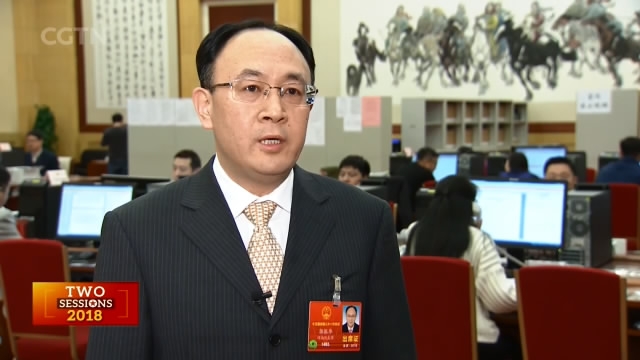
20:43, 16-Mar-2018
China's Political Season: Top legislature receives 325 proposals and over 7,000 suggestions

For those of you who aren't familiar with China's legislative procedure, you may wonder how a motion is raised and becomes legally binding. CGTN's Hou Na walks us through the process.
Before a motion becomes legally binding, it needs to have the signature of at least 30 NPC deputies. It will then be passed on to this special group.
HOU NA BEIJING "This is where NPC motions and proposals are deliberated upon and processed. They will then be submitted to the special committees of the NPC Standing Committee. Lawmakers will get feedback within 3 to 6 months. Of the 325 proposals this year, 322 are now under legislation."
This year the 13th NPC collected 325 motions and over 7-thousand suggestions.
Lawmakers raise suggestions on such issues as targeted poverty alleviation, supply-side reform, environmental protection, and revitalizing the countryside.
Motions are more focused on legislation, including deepening reforms in the national supervision system and maximizing the efficiency of institutional reform.
Guo Zhenhua, director of the Motion Group of the 13th NPC Secretariat, said there were fewer proposals this year than in previous years, but that their quality has drastically improved.
GUO ZHENHUA, DIRECTOR MOTION GROUP, SECRETARIAT OF 13TH NPC "We have seen a slight decrease in the number of NPC motions and suggestions. One reason is that many deputies are newly elected. The other is that we encouraged deputies to put quality over quantity in raising motions."
In the past five years, deputies of the 12th NPC submitted 2,366 motions and 41,353 suggestions. All these proposals have been processed, and the lawmakers who raised them given feedback. Even if a motion becomes legally binding, it still has a long way to go before being implemented and it's an NPC deputy's duty to follow up and make sure it reaches that point. HOU NA, CGTN, BEIJING.

SITEMAP
Copyright © 2018 CGTN. Beijing ICP prepared NO.16065310-3
Copyright © 2018 CGTN. Beijing ICP prepared NO.16065310-3